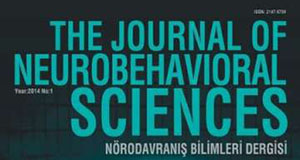
Psychiatric disorders are often reflected in physical symptoms. However, nearly all physical illnesses are accompanied by mental symptoms. Also, it is generally argued that mental function disorders and stress underlie the etiology of physical illnesses. Although modern science has defined in details all the functions of the body including the brain, some areas are not fully understood yet. Philosophical answers may shed light into those dark areas while trying to understand the entity and human.
“Mind-body” issue puzzles physicians and philosophers at least for 2500 years. Whether humans are composed of 2 substances, namely a material substance that is body and a non-material substance that is soul, or of material substance solely or of non-material substance solely is one of the important discussion topics of Philosophy (Taslaman 2007). Also, there are some that argue that this may not be the real issue, and there may be a more fundamental issue of existence. According to historical records, existence and human’s place in existence has been firstly questioned in Anatolia, by Ancient Greek philosophers. Idealism has been based on the idea that the most important task in the world is a reality based on consciousness or mind. The foundation of idealism has been laid by Plato’s “Theory of Ideas”, it then reinforced by various philosophers. According to the idealism, the entity does not change and is one; subject and object are one and the same (Taslaman 2007).
Materialist philosophy has emerged as a reaction to idealist philosophy that argues non-material (mental) powers determine basically all processes in the universe. The root of materialism is based on atomism. Although Leucippus pitched this idea as an ontology theory, Democritus is considered to be the first person who systematically put forth the theory. According to this, atoms are eternal; each formation and change is composed of unification and separation of atoms. The diversity of the objects arises from the differences in number, size, shape, and arrangement of atoms. Democritus claimed that the soul was composed of thin, flat, round atoms similar to fire atoms. Ultimately, although the soul is composed of different kind of atoms than the body, it is not a distinct substance, and the approach of Democritus to the soul is compatible with the understanding of materialist universe (Taslaman 2007).




